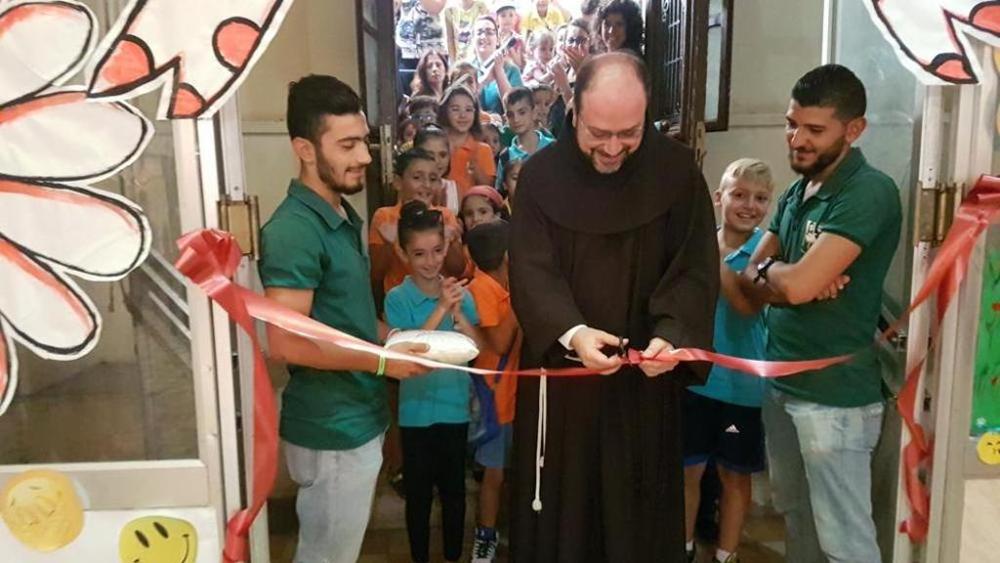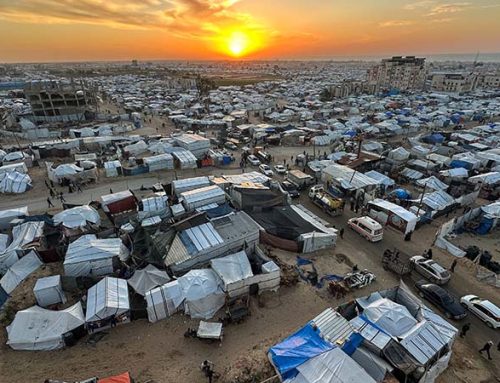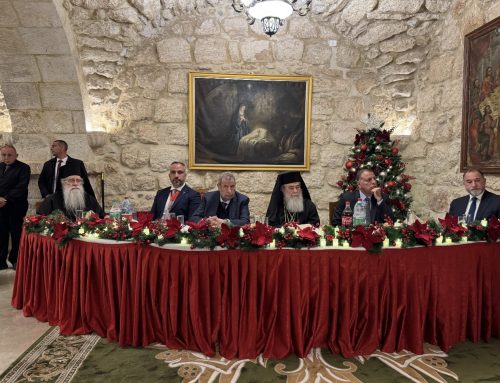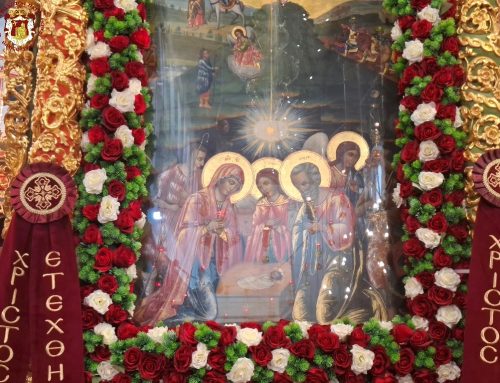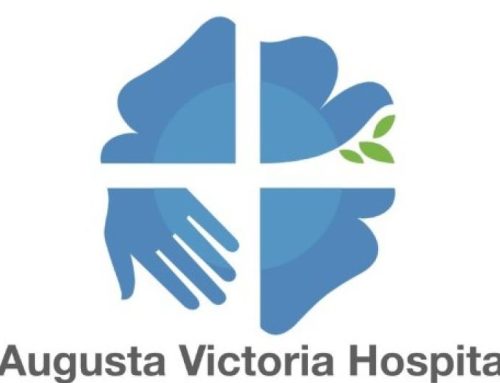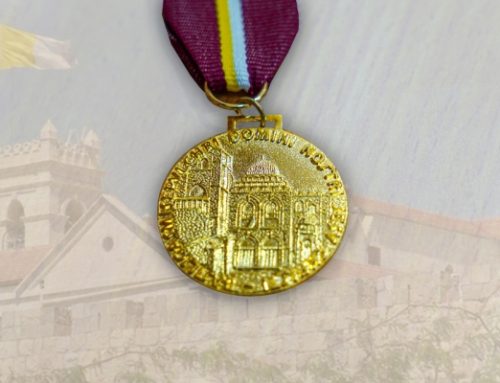In Aleppo, Syria, after six years of war, this is the first summer without bombings, clashes, deaths and devastation; peace is back in most of the city. And for the deeply wounded population a time of reconstruction has begun; life begins again. Those who have lived with soul-crushing pain are not alone because of the ’humanity’ of men and women who feel the wounds of others as their own and reach out their hands. Every day homes are being rebuilt together with the neighbourly bonds and reciprocal care that sustain people and remove them from their dejection and prostration.
On the eve of the celebration of the Assumption of Mary in Heaven, Vatican Insider interviews the 46 year-old Franciscan friar Ibrahim Alsabagh. Originally from Damascus, he is now the parish priest of the St. Francis church of Aleppo, guardian of the convent and bishopric vicar of the Latin community of the city.
What is the current situation in Aleppo?
“Since December 22nd when government forces took full control of the city there have been no more clashes and weapons are silent throughout most of the city. But the war continues in other nearby parts of the country; we hear its sound, especially at night. Here, living conditions have improved a little but many difficulties remain: there is power but only for a few hours a day. There is no water in many areas, in others there is water but it is not potable and there have been several cases of intestinal infections. Goods are quite dear and are often prohibitive. Some neighborhoods are reduced to rubble without a single house having been spared the bombings; in others the situation is better, many buildings have been damaged but are still standing. And they need to be fixed. After six years of war the time of reconstruction has begun; not just for the city, but also for hearts. The conflict has left deep wounds, but along with pain, frustration and fatigue I have also been seeing in people the determination to start living again.”
What initiatives have you started to promote this reconstruction work?
“In January of this year, a few days after the liberation of the city, my brothers and I put together a number of projects to be added to the activities begun during the war, such as the distribution of drinking water and the listening and care of people in need of help. We realized that the Latin Church could not simply wait for the state to intervene to rebuild the city. We had to act and we did it first, with small but secure and steady steps. Since January, thanks to many generous volunteers, we have repaired nearly 600 houses, helped 200 young people start small businesses and dozens of families cope with reconstruction needs. In June we started a summer oratory that welcomed 856 children. Two important projects have been launched for young people who face a lot of difficulties in starting a family.”
Can you illustrate these two projects?
“One concerns engaged couples. There are currently 50 couples (from all the Christian communities of the city) who are attending the marriage preparation courses. It is touching to see how these young people are facing such a big step; from their words, from the way they face the future, I perceive a leap of quality in the way of thinking about the Christian marriage, its responsibilities and the gifting of one’s self to another. We have also proposed supporting them economically because, although they are intent on living very modestly, they cannot bear all the expenses alone. For some couples, for example, we pay rent for one or two years, while for others we help to repair the house and furnish it. As I said, prices are very high; a good Syrian-made refrigerator costs up to 700 dollars, to paint a home it takes from 400 to 800 dollars. There are young women who are content to rent a wedding dress, but often they do not even have the money they need for this expense; we take care of it. And then we help these young people find work.”
And what about the newlyweds?
“We offer them a food parcel every month, we pay their electric bills and medical expenses, including those for pregnancy and childbirth. Furthermore, after the birth of the baby, we provide parents with indispensable goods like milk and diapers. We noted that several couples are struggling to procreate because of various kinds of obstacles (resulting from the war); we pay for all medical visits and interventions that are needed.
The Church is a mother who takes care of human beings not only with spiritual words, which remain indispensable, but also with interventions that support daily life. We are delighted to be able to help such a large number of people by offering the healing caress of Christ; if we succeed in doing so we owe it not to our special abilities but to Christ; it is He who gives us strength, it is He who heals the wounds and takes people from death to life. We strongly believe in the power of resurrection.”
The initiative called “Aleppo more beautiful” took place in June; can you tell us about it?
“On Sunday, June 18th, with the support of local authorities, a large group of scouts began to paint the public sidewalks while also restoring municipal signs; a small gesture to restore colour to the city. The invitation to attend was addressed to the entire population and, in the morning, many people filled with enthusiasm arrived to accompany the scouts. We friars provided gloves, paint, buckets, and brushes to everyone. The experience was repeated on the following Sunday; the even more numerous volunteers were divided into groups which took care of a different sector of the city. It became a celebration that united the population like a big family. The Church must take the first step by beginning to sow good, which, I realize every day, is contagious.”
How are the children living this first summer without clashes or bombings?
“Everyone has endured great suffering and they are bearing its signs. For example, the father of a family told me that his 10-year-old son, after seeing rockets fall near their home, gets alarmed for every little noise; he is always scared. We decided to organize the summer oratory by choosing “with Jesus I will colour my life” as a theme; for two months, thanks to the commitment and dedication of 60 volunteers, 856 children (from the Christian communities of the city) could play, practice sports and take singing, dancing, theatre and drawing lessons. They had a lot of fun. On July 28th there was a great closing celebration that involved 3200 people; all the parents and family members were there, happy to see their children joyful and relaxed.
As far as the future is concerned, we are planning to organize an after-school service involving the Catholic and Orthodox schools of the city (which are also attended by many Muslims); after all their suffering, children and teenagers struggle to study on their own and need to be tutored.”
During the conflict, many families fled from Aleppo; are they starting to return?
“Yes, in good numbers, though I have no official data. Several families tell us that they have made this decision after knowing that they could count on the concrete help of the Church. We dedicate a lot of time and energy to welcoming families needing assistance to start living in the city once again. There are also those who, during their stay abroad, suffered serious injustices and lost everything; now they are bitter and ashamed of what they consider a failure. We guarantee economic support, we help them find jobs, restart businesses, repair homes. And we do not tire of extending our invitation to refugees: ’Come back, do not be ashamed if you have become poor, the Church will give you a hand, you will rise again’. Thanks to God, many benefactors send us money with which we can organize all the many activities I have talked about; unfortunately, in a destroyed city like Aleppo, money is never enough.”
How will you spend the Feast of the Assumption?
“There will be Eucharistic celebrations and we will organize a convivial moment for the faithful. In the East, devotion to Mary is profound; in the 14 days before the feast of the Assumption there is the custom of observing certain fasts and to recite special prayers. This Marian recurrence is particularly dear to me; it is the feast of our Mother, whom God wanted to receive immediately in His welcoming embrace, to which we are all destined.”
Source: Vatican Insider

